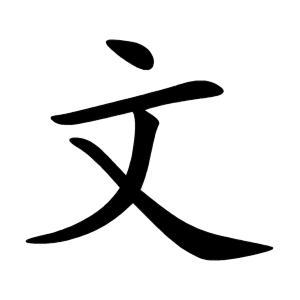Related Research Articles

劉 / 刘 is an East Asian surname. pinyin: Liú in Mandarin Chinese, Lau4 in Cantonese. It is the family name of the Han dynasty emperors. The character 劉 originally meant 'battle axe', but is now used only as a surname. It is listed 252nd in the classic text Hundred Family Surnames. Today, it is the 4th most common surname in Mainland China as well as one of the most common surnames in the world.

Zhao is a Chinese-language surname. The name is first in the Hundred Family Surnames – the traditional list of all Chinese surnames – because it was the emperor's surname of the Song dynasty (960–1279) when the list was compiled. The first line of the poem is 趙錢孫李.
Sun is a transliteration of a common Chinese surname. It is the third name listed in the Song dynasty classic text Hundred Family Surnames.

"Guo", written in Chinese: 郭, is one of the most common Chinese surnames and means "the wall that surrounds a city" in Chinese. It can also be transliterated as Cok, Gou, Quo, Quach, Quek, Que, Keh, Kuo, Kwo, Kuoch, Kok, Koc, Kwee, Kwek, Kwik, Kwok, Kuok, Kuek, Gock, Koay, or Ker. The Korean equivalent is spelled Kwak; the Vietnamese equivalent is Quách. The different ways of spelling this surname indicate the origin of the family. For example, the Cantonese "Kwok" originated in Hong Kong and the surrounding area. In the Philippines, it's "Que", "Ke", "Quepe", and "Kepa". It is the 18th most common family name in China and can be traced as far back as the Xia dynasty. There are eight legendary origins of the Guo surname, which include a Persian (Hui) origin, a Korean origin, and a Mongolian origin, as a result of sinicization. However, the majority of people bearing the surname Guo are descended from the Han Chinese.

Ye is a Chinese-language surname. It is listed 257th in the Song dynasty classic text Hundred Family Surnames, and is the 43rd most common surname in China, with a population of 5.8 million as of 2008 and 2019. Ye is usually romanized as "Yeh" in Taiwan based on Wade-Giles; "Yip", "Ip", "Jip" and "Yeap" in Cantonese; "Iap", "Yap", "Yapp", and "Yiapp" in Hakka and Hokkien.

Xie is a Chinese-language surname. lt is usually romanized as "Hsieh" in Taiwan. It is estimated that there are more than ten million people with this surname, most of whom live in Taiwan, Southern China, South East Asia, America, Europe and Africa. It is particularly common in Taiwan where it is the 13th most common surname in 2016. It is also very common in the east Asian diaspora which historically tended to have disproportionately emigrated out of southern China. A 2013 study found that Xie was the 23rd most common surname in China, with 0.79% of the population having this surname. In 2019 it was again the 23rd most common surname in Mainland China. Most Xie are from southern China. It is the 34th name on the Hundred Family Surnames poem.

Cài is a Chinese-language surname that derives from the name of the ancient Cai state. In 2019 it was the 38th most common surname in China, but the 9th most common in Taiwan, where it is usually romanized as "Tsai", "Tsay", or "Chai" and the 8th most common in Singapore, where it is usually romanized as "Chua", which is based on its Teochew and Hokkien pronunciation. Koreans use Chinese-derived family names and in Korean, Cai is 채 in Hangul, "Chae" in Revised Romanization, It is also a common name in Hong Kong where it is romanized as "Choy", "Choi" or "Tsoi". In Macau, it is spelled as "Choi". In Malaysia, it is romanized as "Choi" from the Cantonese pronunciation, and "Chua" or "Chuah" from the Hokkien or Teochew pronunciation. It is romanized in the Philippines as "Chua" or "Chuah", and in Thailand as "Chuo" (ฉั่ว). Moreover, it is also romanized in Cambodia as either "Chhay" or "Chhor" among people of full Chinese descent living in Cambodia and as “Tjhai”, "Tjoa" or "Chua" in Indonesia.

Jī was the ancestral name of the Zhou dynasty which ruled China between the 11th and 3rd centuries BC. Thirty-nine members of the family ruled China during this period while many others ruled as local lords, lords who eventually gained great autonomy during the Spring and Autumn and Warring States periods. Ji is a relatively uncommon surname in modern China, largely because its bearers often adopted the names of their states and fiefs as new surnames.
Wen Dalin (575–637), courtesy name Yanbo, better known as Wen Yanbo, posthumously known as Duke Gong of Yu, was a Chinese official who lived in the early Tang dynasty. He was a key advisor to the Tang dynasty's founding emperor, Emperor Gaozu, and served as a chancellor during the reign of Gaozu's successor, Emperor Taizong. He was captured by the Göktürks and lived among them for years. After he was freed, he drew on his experiences to provide advice to Emperor Taizong on the Tang Empire's policies towards the Göktürks.
Su is the pinyin romanization of the common Chinese surname written 苏 in simplified characters and 蘇 traditionally.

Wen is the pinyin romanisation of the Chinese surname 文 (Wén).
Kong is a Chinese and Korean surname. It can also be written as Kong in Taiwan, Hung in Hong Kong, Khổng in Vietnam, and Gong in Korea. There are around 2.1 million people with this surname in China in 2002, representing 0.23% of the population. In 2018, it was the 97th-most common surname in China. It is the 25th name in the Hundred Family Surnames poem.

Tāng is a Chinese surname. It is 72nd surname in the Hundred Family Surnames or Baijiaxing of the Song dynasty and 101st in modern popularity. The Tang (湯) family name traces its lineage from Tang of Shang, the first ruler of the Shang dynasty. In modern times the character can also mean "soup" or "broth".

Lu is a Chinese surname. It is also spelled Lo according to the Cantonese pronunciation. Lu 路 is listed 138th in the Song dynasty classic text Hundred Family Surnames. Lu 路 is the 116th most common surname in China, with a total population of 2.35 million.

Lú is the pinyin romanization of the Chinese surname written 盧 in traditional character and 卢 in simplified character. It is also spelled Lo or Loh according to the Cantonese pronunciation. Lu 盧 is the 52nd most common surname in China, shared by 5.6 million people, or 0.475% of the Chinese population as of 2002. It is especially common in Guangdong, Guangxi, Hainan, and Hebei provinces. Lu 盧 is listed 167th in the Song dynasty classic text Hundred Family Surnames.

Lu is the pinyin and Wade–Giles romanization of the Chinese surname written 陆 in simplified character and 陸 in traditional character. It is also spelled Luk or Loke according to the Hong Kong Cantonese pronunciation. Lu 陆 is the 61st most common surname in China, shared by 4.2 million people. Most people with the surname live in southern China; 44% live in just two provinces: Jiangsu and Guangxi. Lu 陸 is listed 198th in the Song dynasty classic text Hundred Family Surnames.

Xu is a Chinese-language surname. In the Wade-Giles system of romanization, it is spelled as "Hsu", which is commonly used in Taiwan or overseas Chinese communities. It is different from Xu, represented by a different character.

Xu is a Chinese surname. In the Wade-Giles system of romanization, it is romanized as Hsu, which is commonly used in Taiwan.
Jiang and Chiang is a Chinese surname. In 2019, it was the 39th most common surname in mainland China. It is listed 13th in the Hundred Family Surnames poem.
References
- ↑ Patrick Hanks,Richard Coates,Peter McClure, The Oxford Dictionary of Family Names in Britain and Ireland